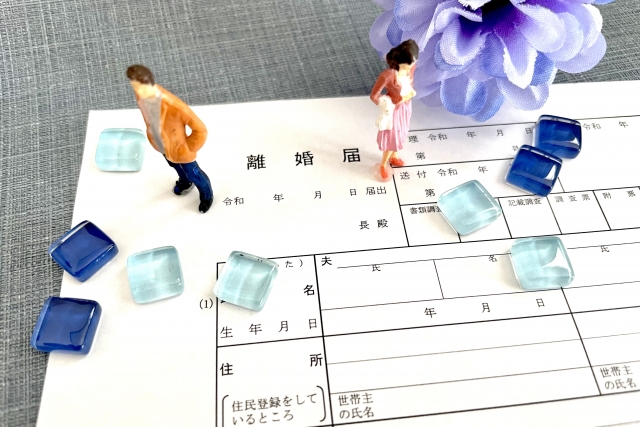Divorce with Japanese spouse


90% of divorces in Japan are by mutual consent
Divorce methods include divorce by agreement, divorce by mediation, divorce by settlement, divorce by trial, etc. Approximately 90% of these divorces are mutually agreed divorces.
Therefore, the first step is to think about how to discuss and reach an agreement with the other party, assuming an amicable divorce.
If you took the initiative and filed for divorce instead of divorce by mutual consent.
Even after filing for divorce, it is not too late if your ex-spouse is willing to discuss matters.
In families with children, the child's growth and welfare should be given top priority. Points to discuss include who has custody, child support, and visitation.
First, take your time and organize the points you want to discuss and the conditions you really want to obtain.
If you are able to obtain custody, the next point to consider is the amount of child support, but please refer to the court's detailed reference amounts published by the Court.
"Report on judicial research in 2019 (empirical research on calculation of child support and marital expenses)", The website of the Court
It is important to agree on whether to pay child support until the child graduates from high school or from college.
However, while the child is small, it is important to be willing to compromise when it comes to visitation, etc. Also, when your child reaches junior-high school or high school, it is likely that he or she will say, "I don't want to see him/her.'' In that case, respecting the child's wishes in the future and discussing them separately in the future should be included in the current discussion points.
Share of Property
Property acquired during marriage is, in principle, joint property, and in principle, it is split 50-50 in the event of divorce. This includes things like houses, cars, bank deposits, etc. that were in ex-spouse's name and for which he/she had made loan payments.
There is also the option of selling your current home after divorce and paying it off with the remaining money, but if there is still a lot left on the loan and the sale price cannot pay off the loan, the deficit will be split in half. This issue must be paid attention carefully.
Will my ex-spouse pay the loan?
On the other hand, if the wife and child continue to live in the house for which the husband has taken out a loan, and the husband decides to rent an apartment, it is important whether the husband will continue to pay the loan in the future.
There is a possibility that if the loan is not paid, the bank will auction the house and the wife and children will be asked to move out.
Share of Employees' Pension Insurance
If the ex-spouse, or husband or wife, is an employee of a private company, a civil servant, or a private school faculty member, they must pay Employees' Pension Insurance Premiums every month. The Sharing of Employee's Pension Insurance is a system that allows you to divide and receive future Employees' Pension benefits commensurate with the insurance premiums paid during your marriage. The period up to March 2008 will be an "agreed-upon split," and the period from April 2008 onwards will be a "No. 3 split." In other words, a No. 3 split does not require the consent of the ex-spouse, and if you go through the procedure, you will be able to split the future welfare pension benefits for both of you during this period. On the other hand, an agreed-upon split requires the consent of the ex-spouse. After all, at most, the future welfare pension benefits for both of you will be divided equally.
So, how much can you receive in future? First, obtain your ex-spouse's pension information from the Pension Office. Please make a request to the Pension Office using the "Information Request Form for Pension Split'' to have it disclosed. Based on this, you will discuss with the ex-spouse to obtain his/her consent regarding the agreed split.
Please note that this procedure will no longer be possible two years after the divorce. For more information, please visit the Japan Pension Service website.
"Pension split in case of divorce", the website of Japan Pension Service (Japanese only)
For foreigner, Japan Pension Service
I cannot tolerate cheating
When the reason for divorce is cheating, everyone will agree with the feeling that "I cannot forgive ex-spouse who was unfaithful.'' It would be comfortable if the other party quickly admitted fault and paid compensation. However, even if you want to make ex-spouse apologize, there may be times when he/she don't apologize. As a result, arguments and divorce proceedings become more stressful. Instead of getting hung up on the term "consolation money," it may be easier to have the payment made in the name of "settlement money," for example.
Prepare Notarized Divorce agreement
When you hear the term "notarized deed,'' you may think that it is a document created by a notary public at a notary public office, and that it has nothing to do with it. However, if the Divorce Agreement is made into a notarized document (Notarized Divorce Agreement), the procedure for dividing the pension under No. 3 will be easier, and even if the promise to pay child support is broken in the future, If there is a "compulsory execution approval clause" in the Notarized Divorce Agreement, it can be compulsorily executed without going through court proceedings. It will cost a little more, but it will give you a lot of peace of mind in the future. (If the desired value is less than 100 million yen, including the notarized certificate of agreement on pension division, it will be approximately 55,000 yen, and if it is less than 50 million yen, it will be approximately 41,000 yen.)
Your Residence Status in Japan
In case you divorce a Japanese spouse, there is the issue of what will happen to your residence status.
Basically, if you divorce a Japanese spouse, you will no longer be eligible to stay in Japan.
What should you do if you want to continue living in Japan?
First, you must notify the Immigration Bureau within two weeks of your divorce. If this notification is delayed, it will be a violation of the notification obligation and may be treated unfavorably in the examination of future applications for change of status of residence.
Reasons for continuing to live in Japan include remarriage to a Japanese person, remarriage to a permanent resident, remarriage to a foreigner who has work status with a residence status, and/or getting a job at a Japanese company.
Another reason is that you took your child custody with you when you divorced and will raise him/her in Japan. At this time, the promise of ex-spouse to pay child support becomes important because you must explain your future livelihood (income) expectations. Along with the divorce procedures, you need to have a thorough discussion with your ex-spouse.
If you and your spouse are in a situation where the relationship cannot be repaired, creating a divorce agreement will allow you to maintain a relationship that respects each other's opinions even after the divorce.
In order to resolve the issue, our office listens carefully to what our customers have to say, and then provides careful support, including the creation and procedural support of draft divorce agreements and notarized divorce agreements, tailored to each individual situation. First of all, we would appreciate it if you could consult with us.


